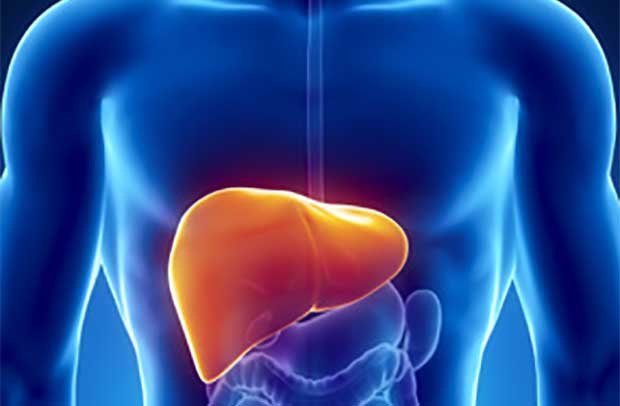Why are irritable bowel symptoms worse during menstruation?
Posted by Master, Doctor Mai Vien Phuong - Department of Examination & Internal Medicine - Vinmec Central Park International General Hospital
Symptoms of irritable bowel syndrome (IBS) affect women more than men. Some people have IBS with simple symptoms, however, some will experience symptoms that are significant and can disrupt daily life.
1. Irritable Bowel Syndrome Overview
1.1 Irritable bowel syndrome symptoms
Some of the main common irritable bowel syndrome symptoms are:
Abdominal cramps; Stomachache; Flatulence and abdominal distension; Constipation ; Diarrhea . It is not uncommon for people with irritable bowel syndrome to experience both constipation and diarrhea. Symptoms such as bloating and gas usually go away after a person has a bowel movement.
1.2 Causes of irritable bowel syndrome?
The cause of irritable bowel syndrome is still unknown, however, several risk factors have been identified including the colon and the patient's immune system being too sensitive. Infectious disease is caused by a previous bacterial infection in the gastrointestinal tract.
Factors associated with irritable bowel syndrome can also vary, including:
Slowing or constricting movements of the colon, causing cramping; Abnormal serotonin levels in the colon affect bowel movements; Having celiac disease damages the intestines and causes irritable bowel syndrome symptoms.

Bệnh celiac có thể là một nguyên nhân gây hội chứng ruột kích thích
1.3 Warning symptoms of irritable bowel syndrome in men and women
Women may develop IBS symptoms around the time of their period, or more often during this time. As the menopause approaches, symptoms may subside. In some cases, you can have irritable bowel symptoms even while you're pregnant.
Symptoms of irritable bowel syndrome in men are the same as symptoms in women. However, very few men report their symptoms and seek treatment.
2. Why are irritable bowel symptoms worse during menstruation?
Symptoms of irritable bowel syndrome change at different times in the menstrual cycle. Experts have estimated that half of women with IBS experience worse bowel symptoms during their periods.
A 2014 paper concludes that sex hormone fluctuations during the menstrual cycle may elicit different responses in women with IBS compared with those without IBS. . Sex hormones include:
Oestrogen; Follicle stimulating hormone; Luteinizing hormone; Progesterone . Receptors for female sex hormones reside throughout the female gastrointestinal tract. A 2015 review concluded that hormone fluctuations in women of reproductive age affect gastrointestinal (GI) function. This is especially true for people with irritable bowel syndrome or inflammatory bowel disease (IBD).
2.1 Symptoms of Irritable Bowel Syndrome Related to Menstruation
For women with irritable bowel syndrome, menstrual symptoms may be more frequent and worse. These may include:
Pain; Tired; Insomnia ; Back-ache; Premenstrual syndrome (PMS); More sensitive to certain foods, such as gas-producing foods.

Hội chứng ruột kích thích có thể gia tăng tình trạng đau lưng khi bạn đang trong chu kỳ kinh
2.2 Treating Irritable Bowel Syndrome Symptoms During Menstruation
To treat IBS symptoms during your period, you need to follow your doctor's instructions, what to do may be:
Avoid irritating foods; Drink a lot of water; Get enough sleep ; Exercise a lot; Eat at main meals; Eat foods rich in fiber; Avoid gas-producing foods like beans and milk. Also, stick to the medications your doctor has prescribed for you. These may include:
Laxatives; Fiber supplements; Anti-diarrheal; Anticholinergic drugs; Analgesic; Tricyclic antidepressants.
2.3 Supportive measures to treat irritable bowel syndrome at home
Several lifestyle changes can help you relieve IBS symptoms at home without the use of medication, they include:
Engage in regular exercise; Cut down on drinks containing caffeine that stimulate the gut; Eat small meals; Use probiotics to reduce gas and bloating; Avoid deep fried or spicy foods.

Sử dụng men vi sinh sẽ cải thiện các triệu chứng của hội chứng ruột kích thích
3. Conclusion
Many women with irritable bowel syndrome notice that their symptoms worsen before or during their period. This is not strange. In fact, it's quite common.
Making sure you stick to your treatment plan is essential to help manage IBS symptoms during your period. If that doesn't improve, talk to your doctor about other options for managing IBS symptoms during your period.
To ensure safety, patients need to go to the hospital for a specialist to examine and accurately diagnose the condition of irritable bowel syndrome. Currently, Vinmec International General Hospital is a prestigious address trusted by many patients in performing diagnostic techniques for digestive diseases, diseases that cause chronic diarrhea, Crohn's disease... Along with that , at Vinmec Hospital, screening for gastric cancer and gastric polyps is done through gastroscopy with Olympus CV 190 endoscope, with NBI (Narrow Banding Imaging) function. ) results in clearer images of mucosal pathology than conventional endoscopy, detecting ulcerative colitis lesions, early gastrointestinal cancer lesions...
Để đặt lịch khám tại viện, Quý khách vui lòng bấm số HOTLINE hoặc đặt lịch trực tiếp TẠI ĐÂY. Tải và đặt lịch khám tự động trên ứng dụng MyVinmec để quản lý, theo dõi lịch và đặt hẹn mọi lúc mọi nơi ngay trên ứng dụng.
References
Bharadwaj S, et al. (2015). Symptomatology of irritable bowel syndrome and inflammatory bowel disease during the menstrual cycle. DOI: 10.1093/2Fgastro/2Fgov010 Gynecological aspects of irritable bowel syndrome. (2016). aboutibs.org/gynecological-aspects-of-irritable-bowel-syndrome.html Mayo Clinic Staff. (2018). Irritable bowel syndrome. mayoclinic.org/diseases-conditions/irritable-bowel-syndrome/symptoms-causes/syc-20360016 Mulak A, et al. (2014). Sex hormones in the modulation of irritable bowel syndrome. DOI: 10.3748/2Fwjg.v20.i10.2433 Palsson OS, et al. (n.d.). Hormones and irritable bowel syndrome. med.unc.edu/ibs/files/2017/10/irritable bowel syndrome -and-Hormones.pdf Yang X, et al. (2017). Estrogen and estrogen receptors in the modulation of gastrointestinal epithelial secretion. DOI: 10.18632/2Foncotarget.18313






